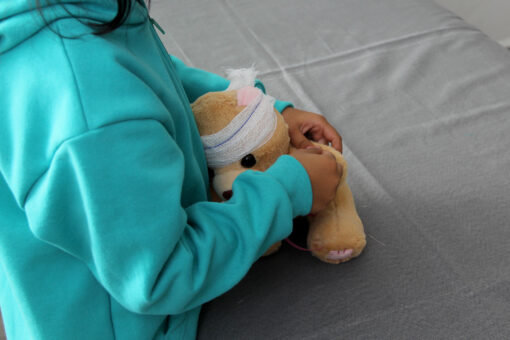Child abuse is a grave concern that affects communities across the nation. The legal system’s approach to addressing this issue is complex, given the varying degrees of abuse and their impacts on the victims. This blog aims to elucidate the circumstances under which child abuse can be classified as a felony, the factors influencing these decisions, and the defense strategies available to those accused. Contact Chambers Law Firm at 714-760-4088 for a free legal consultation.
When is Child Abuse Considered a Felony?
The decision to charge child abuse as a misdemeanor or a felony largely hinges on specific aspects of the incident. Key considerations include the severity of the child’s injuries, the nature of the abuse, and the accused’s criminal history. Understanding these criteria is crucial for grasping how legal proceedings may unfold in these cases.
Extent of Injuries
The line between misdemeanor and felony charges can often be drawn around the outcome for the child. For instance, in states like California, the infliction of any injury that results in a traumatic physical condition, no matter how minor, elevates the charge to a felony. This classification underscores the seriousness with which the law views the physical harm of children.
Nature of The Abuse
The legal system reserves particularly severe penalties for abuse that encompasses exceptionally cruel acts or escalates to sexual abuse. Different states have varied statutes reflecting this stance. For example, Florida’s definition of aggravated child abuse includes acts of willful torture or malicious punishment, classifying such offenses as felonies of the first degree.
Criminal Record of The Accused
A history of child abuse convictions significantly affects how new allegations are charged. Repeat offenders are almost invariably faced with felony charges, reflecting a societal and legal mandate to protect children from recurrent harm. Illinois law exemplifies this approach by categorizing child abuse as a Class 4 felony for those with prior convictions.
Understanding the Penalties
The penalties for child abuse convictions vary widely but are invariably severe, especially for felony charges. The exact sentence depends on state laws and the specific circumstances of the case. For instance, Colorado’s legal framework stipulates penalties ranging from up to one year in county jail for misdemeanors to 24 years in state prison for abuse resulting in a child’s death.
Navigating Defenses Against Child Abuse Charges
Facing accusations of child abuse is a daunting prospect, but there are several defense strategies that can be employed. These include demonstrating that the allegations are false, that any injuries were accidental or resulted from non-abusive causes, or that the actions taken were within the bounds of reasonable parental discipline. It’s important to note that the effectiveness of these defenses can vary significantly based on the details of the case and the jurisdiction.
Seeking Legal Counsel
Given the complexities involved in child abuse cases and the severe consequences of a conviction, consulting with a knowledgeable criminal defense attorney is indispensable. Chambers Law Firm provides expert legal representation and guidance, ensuring that your rights are protected and offering the best possible defense. If you or someone you know is facing child abuse charges, do not hesitate to contact Chambers Law Firm at 714-760-4088 for a free consultation.
The intricacies of child abuse charges, particularly the factors that elevate them to felony status, highlight the importance of understanding your legal standing and options. Whether contesting the charges or navigating the legal system, the support of a skilled defense attorney is crucial.





